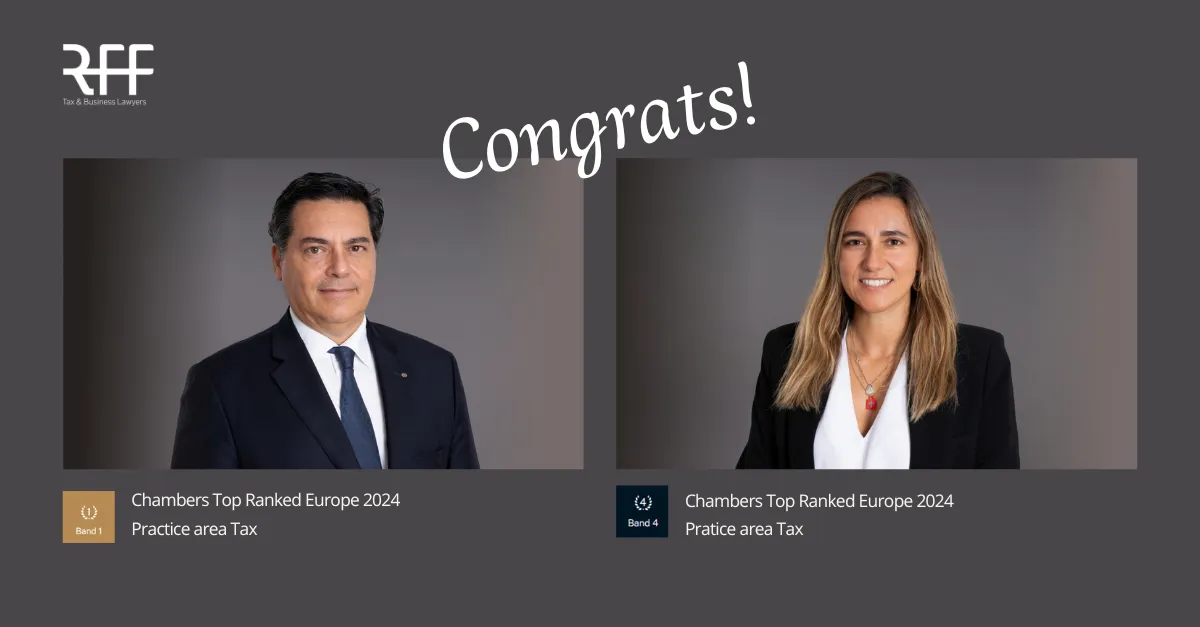The Lexunion Congress: A cross-border discussion about the division of the right of ownership

The Lexunion Congress: A cross-border discussion about the division of the right of ownership
Lexunion is a network combining notaries and lawyers with expertise on the wealth planning field, focused on assisting both individual and companies from a legal and tax perspective.
The network is duly represented on a worldwide basis, with a special focus in Europe, including Portugal, where it is represented by RFF Lawyers, a member of the network since 2021.
In September last year it was held the Lexunion annual congress at Köln, Germany for two full days, planned to discuss the legal and tax matters associated to the division of the right of ownership, specifically its circulation, always from a cross-border perspective.
In fact, in 2021 the annual congress served as a kick in for the discussion to be held later on in 2022, as it was previously presented by the different network members the national rules applicable to the division of the right of ownership and, in cases where such reality is not legally recognized, the applicable solutions usually used in a context of family and wealth planning.
Once properly presented the realities in each jurisdiction, the last annual congress was proven useful for a more practical cross-border discussion on different cases focused on the division of the right of ownership circulation.
From a Portuguese perspective, such division of right corresponds to the figure of usufruct, which is properly regulated within the Portuguese Civil Code, whereas it is defined as such the right to temporarily and fully enjoy a thing or right belonging to another, without changing its form or substance. This right may be constituted by agreement of the parties, will, usucaption or provision of the law for a term of up to 30 years in the case of corporate bodies or, in the case of individuals, until the end of the life of the usufructuary.
The quasi-usufruct concept, however, is not a legal concept for the Portuguese legislation purposes, as it was concluded to be so for the other network members, as per each presentation realized at the congress.
Without prejudice, Portugal should, in principle, accept the quasi-usufruct concept as regulated by a foreign legislation, being relevant to assure from a tax perspective the applicable framework, should any income be generated and received by a tax resident in Portugal.
Alongside said tax matters, it is also important to beware of the impact in cross-border situations, for instance, a succession in one country, regulated by its national rules, but with a division of right of ownership in another one. It is first of all necessary to distinguish the applicable law to the succession, which, in principle, would be the Portuguese one, insofar Portugal was the place of residence at the time of the death, from the grounds for terminating usufruct rights.
In light of the Portuguese legislation, the usufruct can be extinct if different scenarios occur, namely, upon the death of the usufructuary (or upon the expiry of the term for which the right was conferred when the right is not granted for life), by the reunion of the usufruct and the property in the same person, by its non-exercise thereof for twenty years, for any reason whatsoever, if resulting from the total loss of the usufructed asset or even by its waiving.
Focusing on a tax perspective, the constitution of the usufruct and its extinction itself do not automatically trigger a tax event, however, a case-by-case analysis should be performed as the existence of a usufruct will have a tax impact in case of, for example, the sale of a real estate (over which the usufruct was registered).
The Lexunion annual congress then represented an opportunity for a more extensive approach on different cases concerning the division of the right of ownership involving several jurisdictions, thus, explaining how the different rules and concepts combine and work together.
The RFF Lawyers’ Founder and Managing Partner, Rogério Fernandes Ferreira, had the opportunity to not only attend the annual congress but also to be one of the speakers, presenting the abovementioned scenarios from the Portuguese perspective, combined with the other jurisdictions on which the network is represented.
The 2023 Lexunion congress (the XX Annual Congress) will be held in Lisbon, Portugal, and will be focused on the theme of the incapacity and the borders. Specifically, it will be discussed the existing protection measures within the various network members, and proper analysed the circulation from a country to another, being the goal to conclude the congress with proposed solutions to the identified and discussed circulation issues.
Rogério M. Fernandes Ferreira
Founding and Managing Partner of RFF Lawyers
